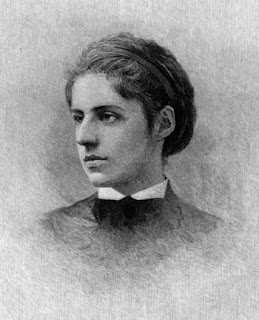
Rich Hoggan
English 48B
03-10-2011
Walt Whitman Blog Entry - Part 2
Walt Whitman is a meticulous writer. I say this because he chooses words that have meaning to what we are reading; he chooses words that give the utmost detail. Taken from his "Song Of Myself," Whitman writes:
Agonies are one of my changes of garments,
I do not ask the wounded person how he feels, I myself become the
wounded person,
My hurts turn livid upon me as I lean on a cane and observe. (58)
As per our discussion today on Whitman being "egotistical," the argument can be made for Whitman not being egotistical. And the passage previously listed is a prime example as to how Whitman is not necessarily egotistical.
But aside from arguing for Whitman's lack of egotistical nature, this passage also gives credence to the fact that Whitman was artistic -- his having agonies. Continuing on with this argument, the passage describes the sheer fact that Whitman is but merely human. We see this in the fact that he faces agonies like everyone else. What's intriguing about this word though is that it's used in the context of being taken on and off. Much like how we analyze literary works with different analytic perspectives, Whitman writes from different "real world" perspectives. In doing so, Whitman is able to, in essence, bring himself down to our level. While this still sounds as egotistical, the evidence continues in Whitman's defense. Similarly, I think one of the more obvious lines is the one that reads "I do not ask the wounded person how he feels, I myself become the wounded person" (58). This line makes it clear that Whitman doesn't tell the "wounded person" how to feel but becomes or understands how such a person might feel.
But suddenly the dynamic of the passage changes as Whitman writes "My hurts turn livid upon me as I lean on a cane and observe" (58). Still considering the fact that Whitman is simply "inserting" himself into society, the keyword to consider is "observe." While it's hard to tell what Whitman meant exactly by this line, it would sound as though he is "observing" others not interjecting his own thoughts.
Taken from sparknotes.com, commentary is given on "Songs of Myself" which reads "While 'Song of Myself' is crammed with significant detail, there are three key episodes that must be examined. The first of these is found in the sixth section of the poem. A child asks the narrator 'What is the grass?' and the narrator is forced to explore his own use of symbolism and his inability to break things down to essential principles" (sparknotes.com - Whitman - Song of Myself). This passage discusses Whitman's interaction with a kid who wants to know what grass is. But this passage also demonstrates that Whitman doesn't try to put off on society what he doesn't know.
To sum up, Whitman makes himself seem as though he is an egotistical, in the prime of his career, artist but the opposite can be seen. It's simply in Whitman's choice of words that creates this idea that he tends to sound egotistical.










